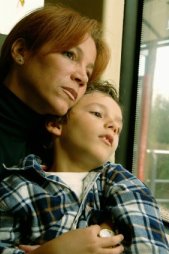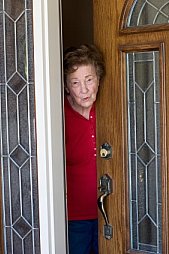SCHOOL VIOLENCE PREVENTION
FAQ

Parents are a crucial part of school violence prevention. These insights about violence in school could help save your child's life.
Staying actively involved in your children’s lives helps prevent violence in school. Know all the details of your child’s school experience. Get as much information as you can. In all, stay fully involved in your child’s life.
TELL YOUR KIDS:
“Always tell me if anything about other students’ behavior at school that bothers you – drink/drugs, gossip, trash-talk, feuds, bullying, threats – keep no secrets from me.”
Then handle their reports calmly – without making your child regret telling you. Make sure your child can always trust you with the truth – though you may need to discretely contact authorities – while protecting your child from any backlash.
RED FLAGS
Remember, the same red flags apply for poorly adjusted kids as for poorly adjusted adults. Columbine High School, Virginia Tech University, Omaha’s Westroads Mall, the Long Island Railroad. Shooting rampages can happen anywhere. Extra police and metal detectors help but don’t identify and track potentially violent students.
Security expert Gavin de Becker – author of Protecting The Gift, FBI expert John Douglas – co-author of The Anatomy of Motive, Dr. Susan Lipkins, an authority on school violence, and the National Crime Prevention Council warn of the following red flags of violence by schoolboys and college students:
• alcohol and drug abuse
• aimlessness
• fascination with violence and weapons
• chronically sullen, angry, depressed, acting tough
• threats of violence or talk of murder (or suicide)
• overhearing or seeing a "hit list" at school or online
• troubling essays or other disturbing writing
• sudden changes in a student's behavior or mood swings
• rejection, humiliation, socially isolated
• talk about retaliation or a copycat crime
• students experiencing bullying or other means of peer isolation
• relationship problems
• problems at home, work, or school
KEEP YOUR EYES OPEN
And pay attention to the behavior of your children’s acquaintances. Any one of the above signs deserves your concern.
Just because they're kids doesn’t mean they won't commit adult-level violence. And kids have even less impulse control, maturity, logic, and foresight.
Prevention of violence in school means keeping timely notes, then report your suspicions to the school principal, the police, and warn the potential victims. Then monitor their follow-up. It's better to have a false alarm than a tragedy.
Teach students that they have the power to act/react since a group can overpower individuals – like the 9-11 heroes of United Airlines flight 93.
SUMMARY of School Violence Prevention
Rampage shooters – whether in schools, shopping malls, or the workplace – all display the same Shooting Rampage Early-Warning-Signs described in Risks & Remedies. Also see Shooting Rampage.
Crime-Safety-Security > Child Safety Overview > School Violence Prevention









